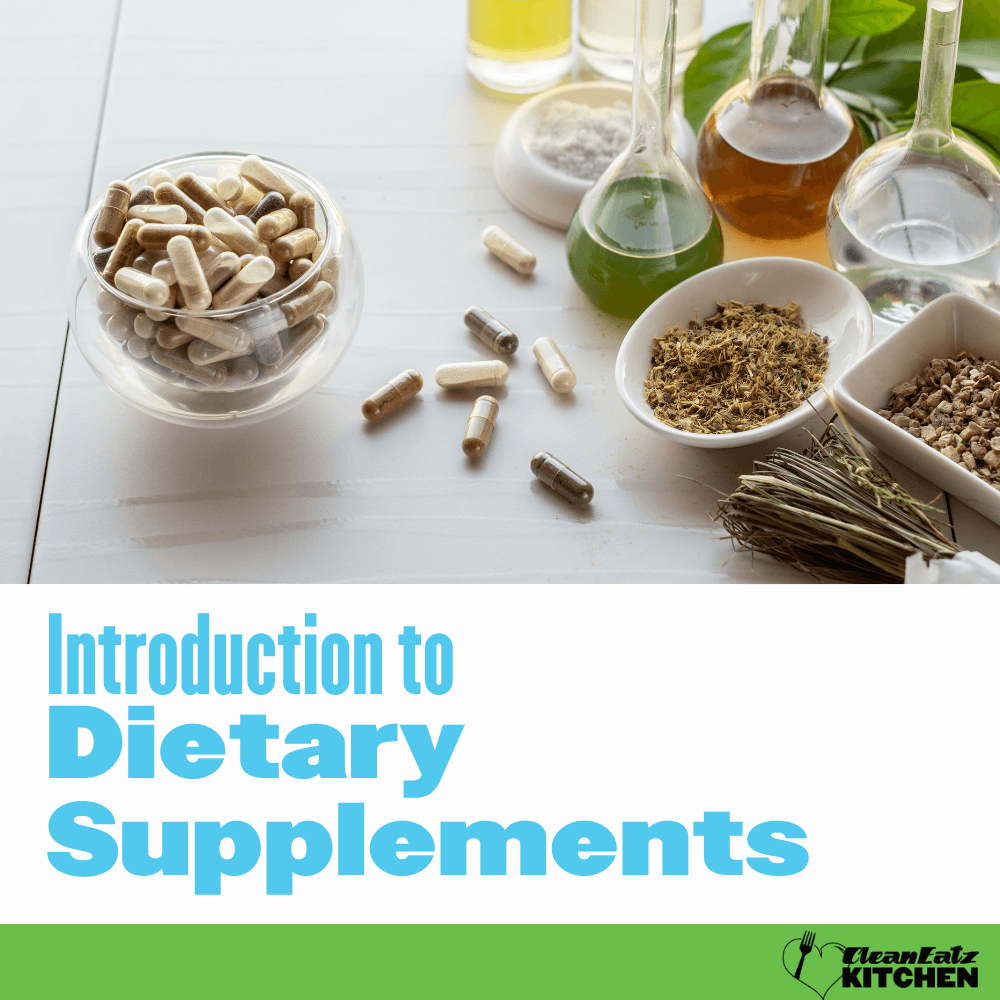
What are dietary supplements and what is their impact on weight loss?
Nutrition
|
Healthy Lifestyle
5 minute read
What are dietary supplements? Did you know that more than half of the US population takes a dietary supplement? In this post we are going to review some of the common dietary supplement and their uses and provide the scientific evidence of these supplements. Always consult a physician before starting a supplement program. So what are dietary supplements and what are they used for?
It’s important to note that the supplement industry is loosely regulated by the FDA. Over the years, some supplement companies have given the industry a bad rap by selling inferior products with promises of performance. Manufacturers of supplements are responsible for adopting "Current Good Manufacturing Practices" but the FDA only audits supplement companies in retrospect - there is no approval process for supplements the same way as there is for prescription medications.
Supplements for Athletic Performance
With a plethora of marketing materials out there recommending hundreds of products, which products have the most scientific evidence backing their claims of performance:
Protein Powders: Protein provides amino acids to skeletal muscle, which during periods of athletic performance, helps the muscle recover and grow. Protein powders are everywhere with the most common, and most effective, deriving from dairy (whey and casein) but protein powders can also meet different dietary restrictions in the way of soy isolate, pea protein powder, and brown rice isolate.
Creatine Monohydrate: Creatine helps your body regenerate intracellular ATP during high-intensity workouts. Essentially creatine helps increase muscular storage and over time can aid in increasing muscle mass. Creatine is commonly found in beef, pork, and fish but supplementation with creatine powders is cheap and effective.
Essential Amino Acids: Essential amino acids are the nine amino acids that the body can't product on its own and therefore are required to be obtained from diet. Again, whereas a 100% balanced diet will provide all the necessary amino acids, if your diet isn't perfect supplementing with EAA products can be helpful.
Supplements for Fat Loss
What are dietary supplements for Fat Loss and how do they work? Like athletic performance, many individuals are seeking to take dietary supplements for weight loss. Dietary supplements can promote a balanced lifestyle. Here are a few supplements with strong scientific evidence to support fat loss supplementation
Caffeine: the most abundant and easily accessible dietary supplement for weight loss. The effect of caffeine is crucial in weight loss. Caffeine stimulates the nervous system to increase energy expenditure, decrease consumption, and reduce perceived effort levels during exercise. Until recently, caffeine was perceived as a diuretic, concurrently dehydrating you but recent studies have shown the effects to be very mild.
Capsaicin: Hot chiles! It seems obvious but eating spicy foods can stimulate thermogenesis, increase your body temperature and decrease the total amount of food you consume. Capsaicinoids and capsinoids play a potential role in weight management. Of course, if hot foods don't sit well with you, capsaicin supplementation will probably upset your digestion and outweigh any gains.
Meal Replacement Formulas: Substituting protein-rich shake formulas for meals have proven to be successful dietary supplements for weight loss. Physically and psychologically these formulas are able to control your meal intake, ensuring you get a balanced meal without overeating.
There are literally hundreds of other supplements out there on the market including BCAAs, Glycerol, Nitrate, Glutamine, MCTs, etc., which may have moderate effects in helping you achieve your goals but each should be evaluated specifically with your physician for safe consumption.
Final Thoughts
Dietary supplements play a significant role in supporting overall health and well-being. They give us vital nutrients and make up for any nutritional voids in our meals. Today's large selection of dietary supplements gives people the chance to address particular health issues and maximize their nutrient consumption. However, it is important to approach dietary supplements with caution and seek professional advice to ensure their safe and effective use. While these products can certainly complement a healthy lifestyle, they should never replace a balanced diet and should be used as a supplement, not a substitute. Being informed, making informed choices, and understanding the potential risks and benefits are crucial for individuals seeking to incorporate dietary supplements into their health regimen.
FAQ
Are dietary supplements good or bad?
Certain types of dietary supplements may help reduce the risk of some diseases. As long as they don't take them in excess, the majority of people can safely consume dietary supplements. Some may also help you feel better or lessen any discomfort brought on by certain ailments or medications, which can enhance your quality of life.
What are dietary supplements and why are they used?
Vitamins, minerals, and herbal supplements, usually referred to as botanicals, are typical dietary supplements. People use these supplements in order to maintain or improve their health.
What is an example of a dietary supplement?
Vitamins (including multivitamins and specific vitamins like biotin and vitamin D), minerals (including iron, calcium, and magnesium), herbs or botanicals (like echinacea and ginger).
Do dietary supplements work?
The majority of research indicates that taking multivitamins won't increase your lifespan, prevent cognitive decline, or reduce your risk of developing diseases like diabetes, heart disease, or cancer. It is actually unlawful for businesses to state that supplements will treat, identify, prevent, or cure diseases.
Who needs to take dietary supplements?
According to Dr. Patricia Haggerty, who does research on nutrition and the immune system at the NIH, people with chronic health issues may also require more of specific vitamins and minerals. Heart disease, diabetes, cancer, HIV/AIDS, and a few autoimmune disorders are among these conditions.



